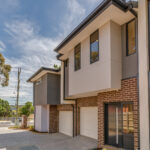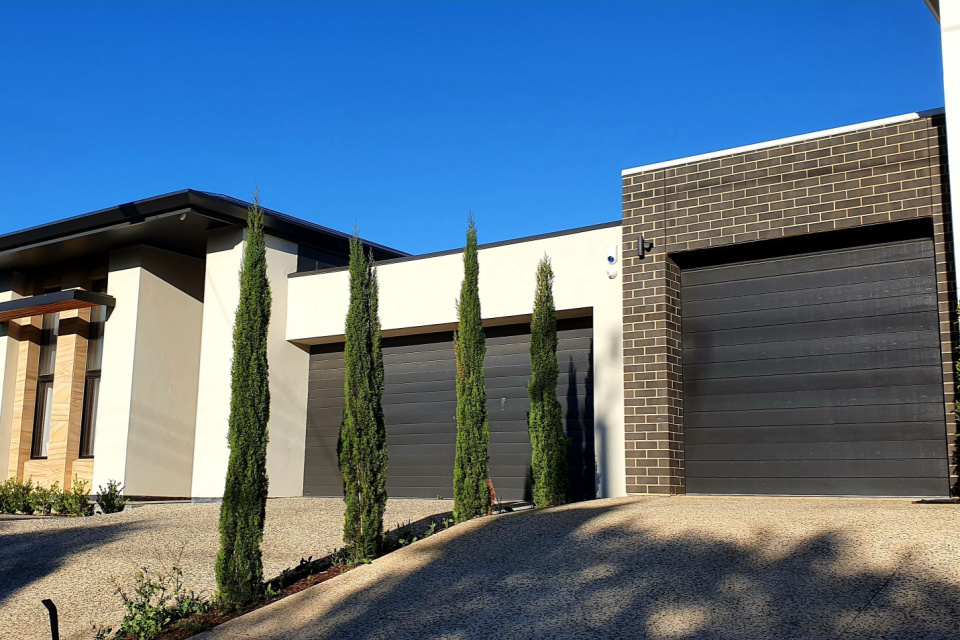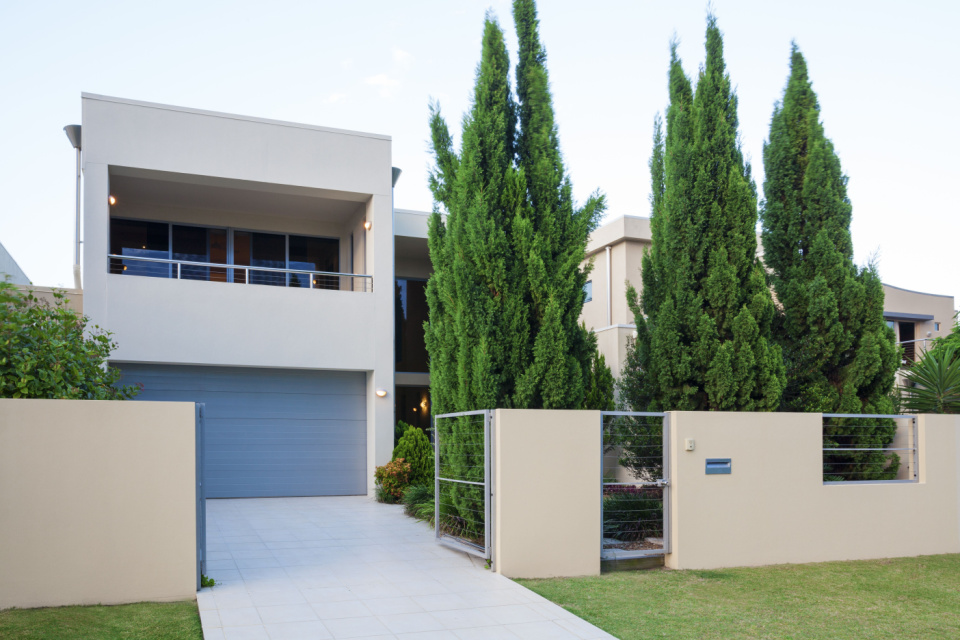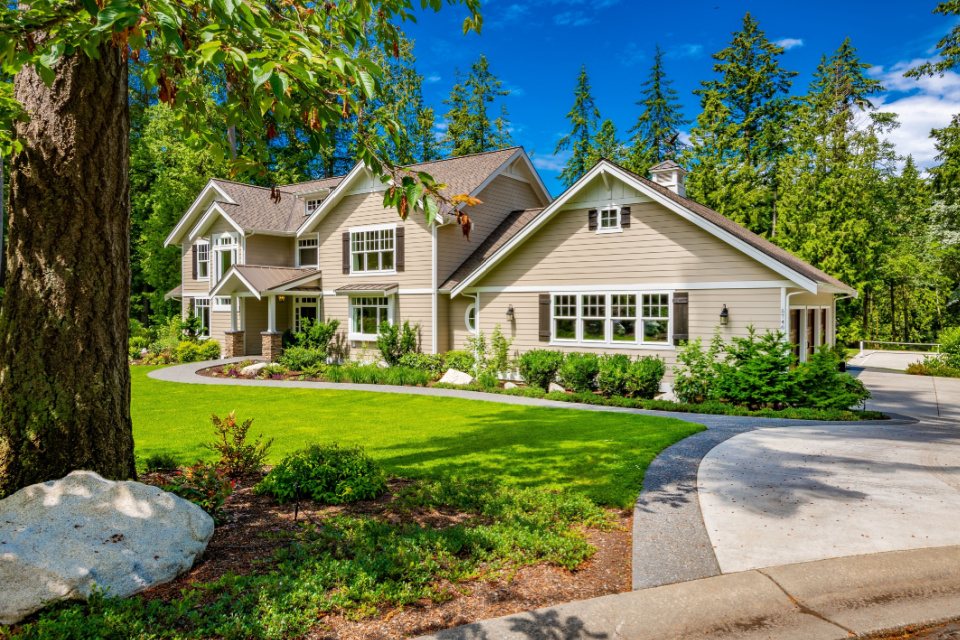
Energy Efficient Custom Homes
11/12/2022
History of Australian residential architecture
12/13/2022How many decision do we make based on rationality, and how many based on emotions? Why do we sometimes make irrational decisions? And what role do emotions play in the decision-making process (when partners make decisions as well)?
People make many different decisions every day. When it comes to choosing and deciding, people are inclined to accept the best option, given the various circumstances.
When people make decisions, they go through a decision-making process. The process of choosing low-value goods is different from the process of choosing durable high-value goods, such as housing.
People need a place to live. A living space is one of the main and essential necessities in life, like food and clothes.
Custom home construction or custom home renovation is one of the most important life decisions for individuals, couples and families. Usually in life these decisions are few and rare, and therefore people don’t have much experience in this particular field. Which means we have to learn new things, like how to go through the selection process to get to the final product. Housing decisions have a long-term effect. They are financially intensive, as they are usually tied to long-term funding, and they play a strong emotional and personal role. It’s common for people to strongly identify with their home; for many it represents an extension of their identity; it can represent their personality and/or status.
The purpose of prudent decision making and custom home builder selection is to maximize the benefits of choice for both the custom home owner and the contractor. People want to make good decisions, the right decisions with which they’ll be happy. When we choose one option, we usually discard the other options, and therefore we want to make the right decision. People don’t like to lose out by making bad decisions.
The initial phase of the decision-making process is the recognised need, in this context, the desire to build a custom home, or renovate or build additions to the existing home.
What follows is research for the necessary information. We need to research how much we can afford to spend on the desired custom home project, what time frame will be needed, and what kind of custom home experts and documents we’ll need. We collect information about the custom home builders and architects. We consult and obtain estimates and the necessary data. A lot of information may already be stored in our memory bank, as we might have faced choosing a custom home builder in the past, or heard from loved ones who went through a similar process, or we might have read something about the right way to choose a custom home builder.
Often in the initial phase, we tend to look for information in our environment; we ask our relatives, acquaintances, friends, neighbours, and others who’ve had similar experiences recently. Positive information from people we trust has a lot of power and influence in the decision-making process. If we don’t have enough information about the construction service providers stored in our memory or from our environment, then we tend to search for them on the internet, or we visit construction-material stores and ask them for more information, and about relevant contractors.
During the collection-of-information process, the individual collects various offers. Based on the offers, written or oral, the individual then assesses the various options. Judging the options is a process in which we weigh and compare the different collected options, either on our own or with the help of a partner or friends. Based on the collected information, the individual then assesses which contractor will provide them with the greatest benefits, according to the individual’s expectations, needs, and the line of least complications.
Towards the end of the selection process, we eliminate the less-suitable providers and select the more-suitable custom home builders. What follows is the decision on which builder to use for the custom home project. We carry out the building project with the custom home builder we selected as the one best suited to our project. When an individual or a couple chooses the best-suited custom home builder for their custom home project, and the implementation process begins, we weigh our choice in terms of the implementation itself, cooperation with the custom home builder, and our satisfaction with the overall planning. We judge our choice based on whether we’re satisfied or less satisfied, or unsatisfied and disappointed. This process is the ongoing assessment present during the custom home construction process and after the custom home project is completed.
The individual must carefully consider their options in choosing a custom home builder as the construction work usually involves large sums of investment, decisions which will carry long-term consequences, and mistakes are harder to correct further down the line. It’s important to take the time to make this decision, to think logically and to identify our emotional motives.
Our choices are influenced by our rational judgement and, more often than not, our emotional, unconscious motives.
The decision-making process when choosing a service or goods of greater value which have a lasting effect on our lives is therefore influenced by our rational decision-making process and other psychological factors. People often think they make rational decisions but don’t consider and explore the emotions that play a strong role in the decision-making process. Research finds that emotions have greater impact on our decision-making than reason and logic.
When designing a custom home, everyone has their own expectations, which are limited to financial availability, construction capabilities and visual manifestation.
When making decisions about building a custom home, renovating and choosing a custom home builder, take the time to make an appropriate judgement of the situation. A pen and paper is a very useful way of determining that. Write down your wishes, expectations and possible problems. Write down what you want and what you don’t want. The more time you take for the rational thinking process about the project, either by yourself or together with your household members, the better decisions you’ll make, and the better prepared you’ll be. The less ready you are, the less you’ll think it through, and the more weight you’ll leave to the emotional decision-making process. Which can be bad, even impulsive. People often indulge in emotional decision-making when they’re insecure, indecisive, or confused, and they don’t take enough time to think of their priorities. Emotional decision-making is considered faster and easier. But it’s often worse.
You must be aware that the process of choosing an architect, a custom home builder, and even the entire custom housing construction or renovation project is a stressful, demanding process. Prudence is necessary, and the more reflection you do, the better the outcome will be. Although, deciding to build a custom home is a big life project, with large financial investment for which the client often has to work for many years after building/buying a custom home, many people still make this big decision based on emotions and too little on rational thinking. Research estimates that 80% of decisions are still taken mainly based on emotions, which are influenced by psychological factors. These psychological factors play an important role because we didn’t do enough rational assessment of the whole process of buying/building a custom house.
When assessing the possibilities, people take into account a number of rational aspects, which they assess, and evaluate according to the criteria such as:
- Technical: appearance of the contractor’s products, contractor’s reliability in relation to recommendations, forums, customers’ feedback, quality.
- Economic: the price of the service, price of materials, final price, other possible additional costs, discounts and, of course, the client’s available finances for thecustom home project.
- Social: social standing and affiliation, fashion …
- Personal: contractor’s self-image, how confidently and convincingly they act. On the other hand is the client’s self-image, their emotional belief that they’ll be able to express their opinion to the contractor, and that their opinions will be taken into account. And thirdly, that the client and the contractor will be able to communicate in an inclusive way, morality (for example if the client finds out that the contractor has been part of risky or illegal transactions, or has cheated someone …), feelings of trust/distrust that the client experiences while making decisions, and contacting the potentialcustom home builder, client’s need for reassurance, risks.
Emotions play a very strong role in our decision-making processes. The human subconscious mind is influenced by many irrational beliefs, such as:
- People believe that the famous custom home builders, for which we heard or read about (in magazines, ads, internet, and acquaintances) are better and of better quality. They can be. However, chances are they’re just better at advertising themselves and theircustom home building company.
- The appearance of the construction products can look very appealing and beautiful on the outside. And if it’s beautiful, people tend to think that the product is quality. People don’t tend to think about the hidden flaws, sustainable quality, and its functionality.
- Thecustom home builder’s verbal promise that there is no problem, that they will eliminate all hidden mistakes at their own expense, but if there is no written contract and something goes wrong, the custom home builder can disappear and not fix the mistakes they promised to fix. People tend to have a lot of trust in the words of a confident and charismatic custom home
- Market beliefs that bigger custom home builders have better prices than smaller custom home builders.
- The ratio between price and quality, the idea that the more expensive products are also of better quality. This is not always the case.
- The positive recommendations of people we know, respect and appreciate have a strong influence our choices and the decisions we make. They inspire us with their sense of confidence, especially if they have a lot of knowledge in the field about which we are making decisions.
- Our choices are also influenced by physical attractiveness, and the first impression we get from talking to the potential custom home Attraction stimuli are more convincing and have more positive impact on the choices we make than the average impression.
- Make a list of priorities; what is important to you and to your partner, your priorities and what is important to you when it comes to the custom home Also make a list of what you don’t want. As a result, you’ll know more about what you want and what you don’t want. Consider the strengths of the potential custom home builder, as well as his weaknesses. Often people want to see only the benefits; we don’t want losses or complications. But, as in life, usually everything comes in a package. Therefore, when making a decision, it’s important to assess the ability of the custom home builder to admit to their mistakes and look for solutions on how to solve the problem together. Ask the custom home builder about their failures and the things they’ve learnt along the way in the construction industry.
- Emotional delusions can occur when we indulge in emotions and make decisions based only on our feelings, especially those influenced by our first impression.
For example: You want the custom home construction finished in one year; you don’t want it to be delayed. Therefore, ask the custom home builder about the work’s timetable, how many other custom home projects the construction company is doing, and what is the workforce of employees and other subcontractors.
What are the factors that influence the selection of a particular custom home builder or architect?
Ask the custom home builder about their references from people for whom he’s built a custom house or renovated the apartment in the last three years. If possible, have a look at their previous custom home constructions; ask previous clients to give feedback about the work, cooperation, satisfaction, or dissatisfaction with the custom home builder. Ask if the construction company has followed the timetables and deadlines, if the construction company communicated in advance about any delays, or if they just delayed without explanation. If they adhered to the contract in terms of implementation, price, and deadlines. Ask the previous clients if something went wrong. Was the construction site clean and organised, or messy? Was the construction site very noisy, and how did the neighbours react? Does the construction company have an adequate network of subcontractors?
Practical advice on how to make the most optimal and rational decision on a custom home project.
What reasons trigger the need to buy real estate or renovate a home?
- Leaving home, moving out of parents’ house, either alone or with a partner;
- Deciding to have a baby, or the birth of a baby/babies, and so requiring more space;
- Employment with an indefinite contract, consequently credit-worthiness, and a desire for one’s own home;
- Separation and consequently the need for two separate units where the former partners can live separately, by themselves or with kids, after the divorce;
- Empty nest, when children grow up and move out, and the parents want to move to a smaller living unit;
- Aging people might prefer to live on the ground-floor apartment, for easier access, with no stairs;
- A desire for something new;
- The house getting so old that it makes no sense to renovate it;
- Better economic status and consequently the possibility of a more luxurious housing, which might give the owner a greater sense of power and reputation.
Emotions that surface in the process of deciding to build a custom home or make a renovation
An individual, a couple or a family who decide to build a custom home face a variety of emotions. Firstly, there is excitement, the joy of anticipating a new custom home or remodelling an existing one. There are also fears and uncertainties about finances, how much to invest, which elements to add, and which to give up. You will need courage, motivation, and commitment in the search of the appropriate location. A suitable architect and custom house builder with whom to make a conceptual design and concrete plans, and later the implementation. When choosing all the little and large built-in elements such as building materials, flooring, heating, design, roofing materials, doors, windows and so on, and when choosing furniture, each choice will require an assessment, weighing between major and minor benefits, which will be frustrating and exhausting. The client has to make a lot of choices and decisions, which can be stressful and can create a lot of uncertainty and need for additional research, consultation, and decision making.
When choosing a custom home builder, I believe it’s really important to choose someone you can trust. Someone you can ask about their knowledge and opinions. When building a custom home, there will be a lot of decisions to make, and you need to be aware that each choice can have an impact on financial terms, upgrades, sustainability, and overall satisfaction with the custom home.
Building and renovating a home requires a great deal of perseverance, on both parties, the client and the contractors.
Later, when children grow up, they will decide where to live their lives. They can live at home with their parents; they can rent a place; they can move into their partner’s apartment or they can buy their own property. Some people buy real estate as an investment.
The decisions regarding the purchase of real estate are also influenced by external motivational factors. These factors could be the need for validation from others, showing off in front of others, a better reputation, higher status and soon.
About the Authors
Peter Mikus was born in 1973 in Slovenia and has been involved in the construction industry since childhood when he occasionally accompanied his father to his work in civil construction. He began his adult employment in hospitality, but when managing building works for his pizzza shop, he discovered greater satisfaction in concrete than in tomato sauce.
He migrated to Australia in early 2000 and got his builders licence in 2012 when he established Toto Properties, a construction company specialised in building on sloping land.
Peter is an advocate of sustainability, energy efficiency and healthy buildings that are kind to human health. He lives in Melbourne with his wife Gina and three children.
Dr Nada Trtnik, who wrote the final chapter, has a psychology practice in Slovenia that specialises in family relationships.




